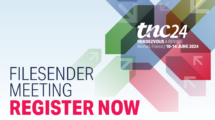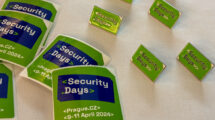Author: Ann Harding (Activity Leader, GÉANT Trust & Identity Services)
Fairness matters. In our NREN environment, surely we know this – we work to share knowledge, break down borders and develop the online world to be a better place. But sometimes we underestimate quite how fundamentally fairness matters and how this impacts in non-obvious ways.
The first thing to note is when the monkey only knows about cucumber, it is quite acceptable. Innovation and change have their roots in wanting or needing things to be different than they are now. Learning that there are other possibilities triggers ambition and disrupts our views of what is possible. When we come together at events like TNC, we learn what others are doing, think about what we can change or implement back home. That way, we end up with grapes for everyone.
Well, maybe it isn’t that simple.
We need to think about fairness in how we do things, as well as what we do.
In the case of federated identity, three main parties are involved in connecting the user to a service. The first is the campus, who provide the identity. The second is the service, who provides the resources being accessed. The third is the federation who provides a fabric of trust within which everyone operates. For many simple use cases (the majority of the 8,000 recorded in R&E identity federations), the fairness of the system is in balance. Campuses get to save effort on password renewals, services get to offload the effort of user management and both benefit from increased security and better data protection scopes.
However, for the complex use cases, the fairness balance is out of alignment. Research communities still experience difficulties getting attributes.
Campuses, meanwhile, experience difficulty in getting resources to change, or lack scalable processes to handle this type of requirement. This is where the federation is required to rebalance the fairness levels between parties. When the federation implements support for tools such as Research and Scholarship and the GÉANT Code of Conduct, it no longer results that one party must have cucumber for the other to have grapes.
There’s one more lesson to be drawn from this case, probably the most important one of all. Fairness is in the eye of the user. We may think we have the greatest solution (cucumber is good in salads, you know!) but no matter how much we explain it, produce lovely materials and give excellent presentations on it at TNC, the final judgement is in the hands of the user. Of course, our users are generally politer than monkeys and don’t throw our solutions at the wall quite so obviously. We therefore need constant contact and engagement to do the right thing. TNC is a place to make the connections, to find our friendly and helpful critics and learn how to build services that are fair, and therefore successful.








Add Comment